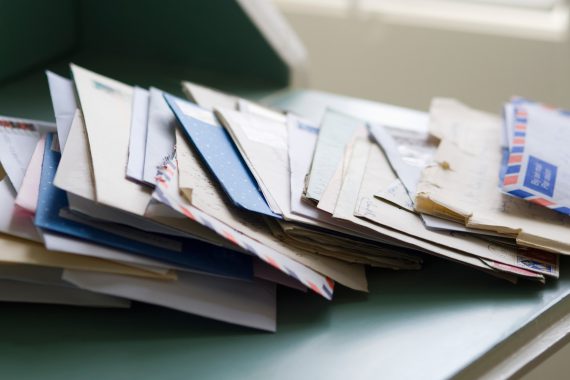NHS England to reclaim £260k from practices over lost GP correspondence

NHS England will reclaim approximately £260,000 from GP practices that it says did not review lost patient correspondence.
Speaking in front of the Public Accounts Committee yesterday, NHS England chief executive Simon Stevens and finance director Paul Bauman were questioned about the progress of the recovered patient records previously lost by NHS Shared Business Services.
Mr Stevens said that while GPs had responded effectively on the whole, they would be reclaiming ‘all of the money’ from those who had not checked records.
By this time last year, practices had been paid over £2.5m by NHS England to review and assess patient documentation that was lost in transit.
The MPs’ questioning came after it was revealed that GPs had been missing out on clinical correspondence dating back to 2011, due to errors made by NHS SBS in forwarding and redirecting documents sent to the wrong practices by hospitals.
Despite the provider’s contract ending in 2015, the issues were not revealed until July 2016, following the primary care support services being contracted out to Capita.
The five years of correspondence backlog was not helped by the new Capita contract, which did not include mail redirection services.
GPs were instead told to send any mistaken post back to the originator, although many documents were still sent to the private company, leading to an accumulation of almost 400,000 clinial letters.
Practices were told that they would be required to review and assess all the misplaced patient documentation, with the BMA negotiating that GPs would be paid in line with how much correspondance they sorted.
However during the accounts committee session, chair Meg Hillier stated that ‘GPs received quite a lot of money from NHS England to do work that they didn’t always do, to check these records’ and asked, ‘are you going to try and get any of that money back?’
Mr Baumann responded that NHS England will reclaim ‘all of the money from GPs who did not perform the function that they needed to perform for us’.
And Mr Stevens said: ‘We are reclaiming around £260,000’.
But he added: ‘I think GPs have responded effectively in the round.’
The heated session, which took place in the House of Commons yesterday, led to Ms Hillier stating: ‘We’re not hammering GPs but you’re not answering the question’, to which Mr Stevens responded: ‘Well I’m not joining in the hammering I guess and that’s what I’m being hammered for’.
As of 1 May, Capita will take over the task of sorting and redirecting mail which is mistakenly sent to them, a role which currently sits with the NHS England incidence team.
Mr Baumann said that a ‘major communication campaign’ will be launched to communicate both the nature of the service and the need for GPs and practice administrators to ensure that all incorrectly received documentation is directed back to the originator.
The finance director went on to say that following this, NHS England will ‘generate statistics’ in order to see where mistakes are still being made so they can ‘be more targeted’ in their approach.
This update follows a PAC report from November last year, which told NHS England to give GPs a March 2018 deadline to review the patient correspondence and report back.
The report found that by October of that year, 2,000 GPs had yet to confirm that they had reviewed 102,000 items, and accused NHS England of ‘giving up’ on finding out whether any patients had been harmed by the delays.
The NHS SBS mail redirection blunder
Since 2015, 709,000 items of clinical correspondence were lost in transit between hospitals and GP practices – with a further 162,000 pieces unveiled in November. First uncovered in 2016, the issue affected areas including East Midlands, North of England, North East London and South West England.
When a patient changed practice the mail redirection service was intended to ensure continuity by redirecting correspondence returned by their old GP to the new one.
But the documents were instead stored in a warehouse and unearthed in 2015. This included temporary resident forms, patient test results and communications about treatment.
No cases of patient harm have been reported but, by November last year, it had cost £6.6m to find and assess correspondence, with NHS England estimating it would cost another £1m.
Pulse July survey
Take our July 2025 survey to potentially win £1.000 worth of tokens











